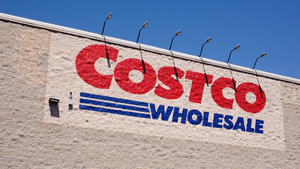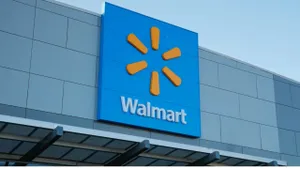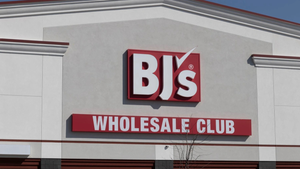Supermarkets Make Most of Reusable BagsSupermarkets Make Most of Reusable Bags
With its new reusable bag program, United Supermarkets is going green and eventually pink. The 47-store food retailer, operating under the United, Market Street and Amigos banners, is planning to roll out a promotion this October in which it will offer pink versions of its reusable grocery bags, with all proceeds going toward Susan G. Komen for the Cure, a nonprofit organization
July 14, 2008
MARK HAMSTRA
LUBBOCK, Texas — With its new reusable bag program, United Supermarkets here is going green — and eventually pink.
The 47-store food retailer, operating under the United, Market Street and Amigos banners, is planning to roll out a promotion this October in which it will offer pink versions of its reusable grocery bags, with all proceeds going toward Susan G. Komen for the Cure, a nonprofit organization supporting breast-cancer research.
It is just one example of the ways retailers are leveraging the merchandising of reusable bags to their advantage, even if the sales of the bags themselves don't add to the bottom line.
United launched its reusable bag program at all three of its banners in March, offering green, non-woven polypropylene bags that carry the logos of all three banners. In addition to the basic, 99-cent bag, United also offers an insulated bag for hot or cold items for $2.50 and a six-compartment wine bag for $1.99. It obtains the bags through TopSource, Braintree, Mass., which is a division of the Topco private-label cooperative.
“It's a pretty low-margin deal,” Eddie Owens, a spokesman for United. “It's more of an effort to do the right thing.”
Offering the bags helps burnish the company's image in the area of environmental sustainability, augmenting several other green efforts at the company, he said. Following in the footsteps of chains like Whole Foods Market, which eliminated plastic bags from its stores in April, Owens said United plans to test the removal of plastic bags from one store later this year.
Drew Hembree, TopSource category coordinator at K-VA-T Food Stores, Abingdon, Va., agreed that reusable-bag programs provide more in the way of public relations than they do profits.
“This is not something we are looking to make money on, but we are looking at it as a civic responsibility,” he told SN, although he added that the company, which operates the Food City chain in Kentucky, Virginia and Tennessee, hopes that the sale of reusable bags eventually will reduce its costs for plastic grocery bags.
Both United and K-VA-T have reported strong success with their bag programs, selling through their initial orders faster than expected.
“We rolled out 20,000, and they were gone in a matter of days,” Owens told SN. The chain ordered another 70,000 bags, which it distributed throughout its stores earlier this month. The TopSource bags, which are obtained from Canadian supplier InStore Products and manufactured in China, have been much more popular with customers than a previous reusable bag United had rolled out in 2005, he said, citing the higher-quality material and the reinforced bottom.
At K-VA-T, which rolled out the reusable bags at the end of 2007, the chain has already gone through its first two shipments, totaling more than 105,000 bags.
“Sales continue to be strong since inception,” Hembree told SN. “Every time I go in a store I see a few people with them.”
To help defray the initial cost of the bags and drum up publicity, the chain launched its initial run with the support of two TV stations — one at each end of its market, and placed the broadcasters' logos on the bags in addition to the Food City logo. The bags also sport the statement that Food City is “taking a stand in the reduction of plastic bags.”
Some chains have sought to create buzz around their bag programs by launching competitions in which consumers help create designs for the bags.
Pittsburgh-based Giant Eagle took a similar approach this spring when it enlisted students taking a course called “Design and Social Change” at the Carnegie Mellon University School of Design to create in-store posters encouraging use of the bags. The posters launched April 16 — just as the company kicked off a flurry of green activities related to Earth Day.
About the Author
You May Also Like




